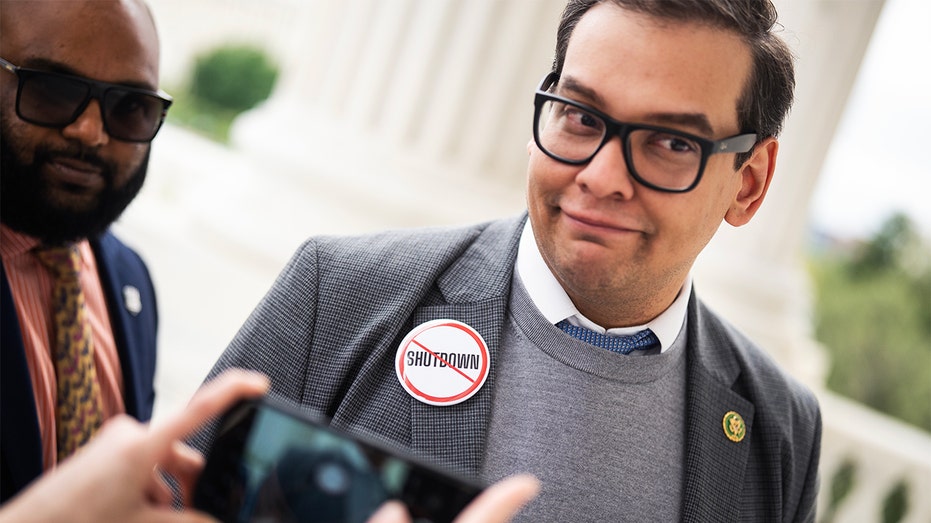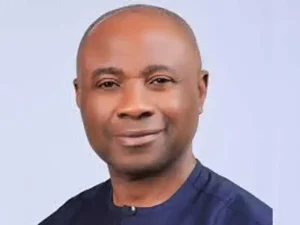Recently the heads of National Public Radio and the Public Broadcasting Service testified in a politically charged congressional subcommittee hearing amid the latest Republican effort to defund U.S. public media.
Chaired by Republican firebrand Marjorie Taylor Greene, the hearing (in hyperbolic language that echoed that used in the Joseph McCarthy era) is called “Anti-American Airwaves: Holding the Heads of NPR (National Public Radio) and PBS (Public Broadcasting System) Accountable.” Greene is head of a “delivering on government efficiency” (DOGE) group within the House Oversight Committee. Greg Rossel lives in Troy.

This is just the latest version of the perennial attacks the Republican Party has waged against the Corporation for Public Broadcasting (CPB) and public media in general in the hopes of zeroing out funding in Congress. This is nothing new for the conspiracy theory-loving Georgia congresswoman who has charged “NPR and PBS have increasingly become radical left-wing echo chambers,” and with zero evidence has accused NPR of having a “communist agenda.” In this quest she is assisted by the unelected bureaucrat and world’s richest man, the chainsaw-wielding Elon Musk.
A few nuts and bolts: CPB is a private, nonprofit corporation that was authorized by the Congress in the Public Broadcasting Act of 1967. The act was created to provide universal and free access to quality media that was not solely created to sell products. Ninety-nine percent of Americans have access to public media.
And, despite the proliferation of outlets offered via cable and via the internet, the need for this service has only increased. Here’s where the funding goes: 386 radio grantees, representing 1,216 public radio stations and 158 television grantees, representing 365 public TV stations. Overall, 245 of the total 544 radio and TV grantees are considered rural (like Maine).
The cost of this modest federal investment is about $1.60 per person each year — less than a cup of coffee. Public and community broadcasting (both radio and television) is essential to rural states like Maine, providing a free and vital service like no other.
First out of the box is the infrastructure. It is the backbone of the emergency alert system that covers and protects the entire state of Maine. It provides storm and other alerts in regions that have no mobile coverage.
It requires no one to have a cell phone plan — one only needs to have an inexpensive radio. Equally important is the cultural and educational value to the citizens of Maine. For free with no paywall.
Public and community stations provide children’s programming, science, arts, drama, public affairs, live concerts, environmental coverage, high school basketball and investigative and even-handed journalism. And, no, streaming and cable do not do it. The quality is not there and high-end affordable internet is not free or even universally available.
Maine is extraordinarily fortunate to have vibrant television and radio stations like Maine Public and Community Radio WERU-FM . Alas, the local production of television and radio is not free. Although very frugally run, the stations still have all the bills that any small enterprise (even a nonprofit) would have and more due to the broadcasting infrastructure.
It’s important to note that much of rural Maine, especially the 2nd District, is financially disadvantaged. Loss of CPB funding would force these vital services to make serious decisions on what they are able to provide to the public for those who need them the most. CPB is such a tiny portion of the federal budget and yet it makes such an important difference across America — from Alaska to Maine, Florida to Texas, Puerto Rico and Native American tribal lands across the country, to Guam.
You get the picture — everywhere in the nation. It is not, as some have said, a frill or elitist. It is about whether we, the citizens of Maine and the United States, recognize that a well-educated public is important and essential to democracy in America.
We believe it’s important to offer commenting on certain stories as a benefit to our readers. At its best, our comments sections can be a productive platform for readers to engage with our journalism, offer thoughts on coverage and issues, and drive conversation in a respectful, solutions-based way. It’s a form of open discourse that can be useful to our community, public officials, journalists and others.
Read more...
We do not enable comments on everything — exceptions include most crime stories, and coverage involving personal tragedy or sensitive issues that invite personal attacks instead of thoughtful discussion. For those stories that we do enable discussion, our system may hold up comments pending the approval of a moderator for several reasons, including possible violation of our guidelines. As the Maine Trust’s digital team reviews these comments, we ask for patience.
Comments are managed by our staff during regular business hours Monday through Friday and limited hours on Saturday and Sunday. Comments held for moderation outside of those hours may take longer to approve. By joining the conversation, you are agreeing to our commenting policy and terms of use .
More information is found on our FAQs . You can modify your screen name here . Show less Please sign into your Press Herald account to participate in conversations below.
If you do not have an account, you can register or subscribe . Questions? Please see our FAQs . Your commenting screen name has been updated.
Send questions/comments to the editors..
Politics

Opinion: Public and community broadcasting deserves to be defended

The latest Republican effort to defund public media ignores the extraordinary difference a tiny portion of the federal budget makes to communities nationwide.















